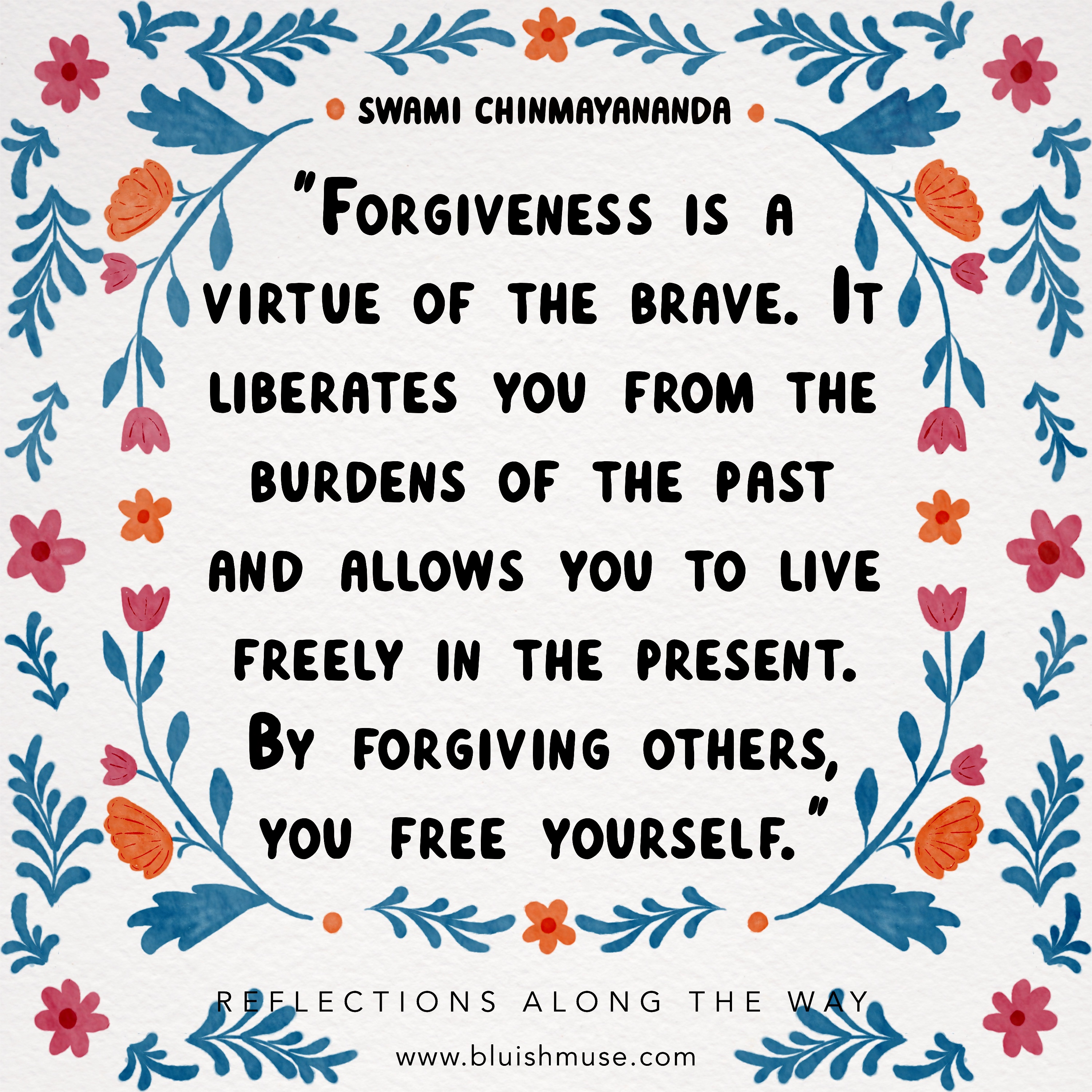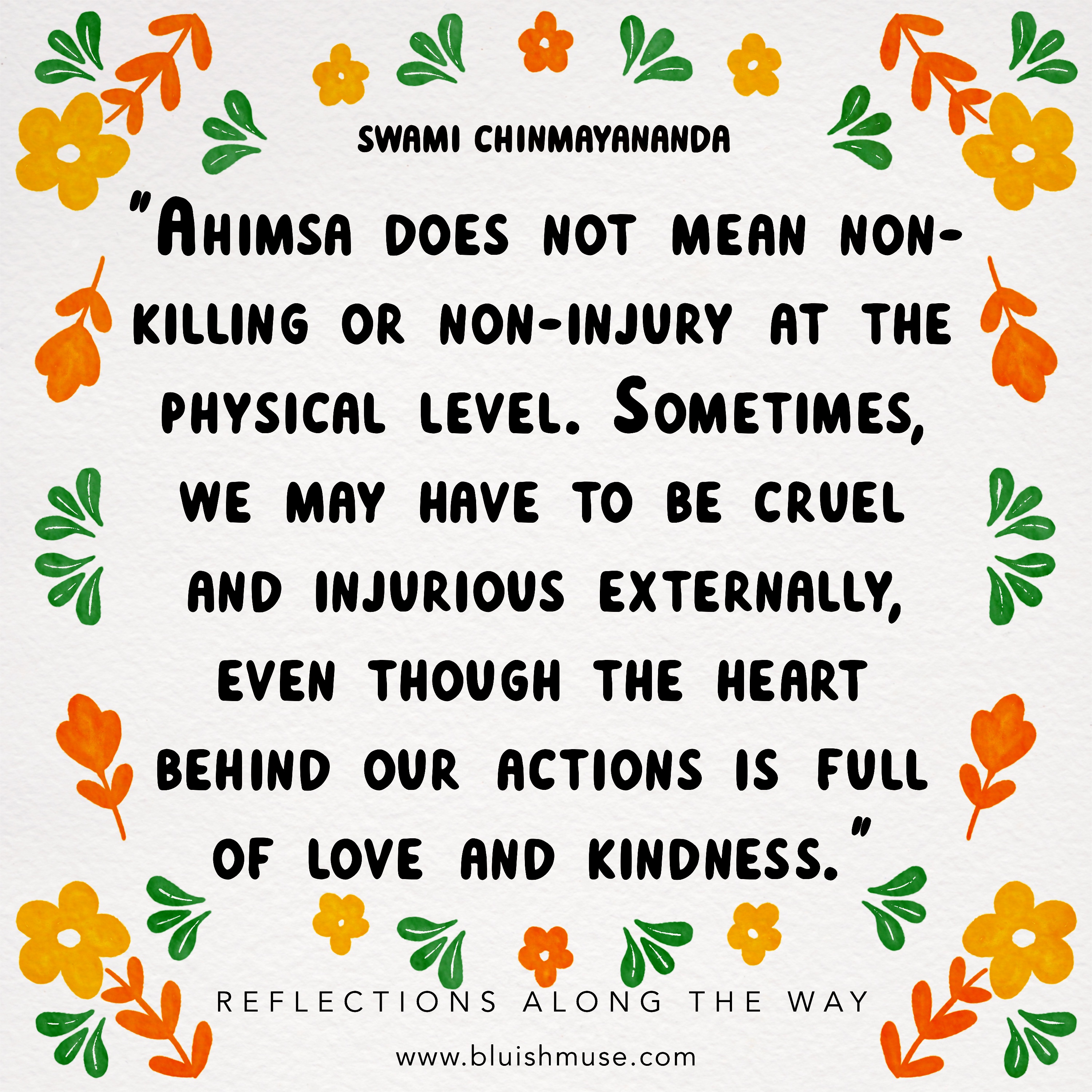The Power of Forgiveness and Ahimsa
Description
Note: This is the 17th reflection in a series inspired by Self-Unfoldment by Swami Chinmayananda.
Even the most composed and balanced person can lose their calm at times. We may see individuals who have cultivated great strength, equanimity, and restraint suddenly falter.
When the mind holds on to resentment, anger, or hurt, it loses its natural balance. A single incident can shake even a well-established mind, pulling it down from its center of peace.
To prevent this, we must allow a free flow of forgiveness in our hearts. Forgiveness cleanses the mind of negativities that accumulate within. It keeps the heart light, pure, and receptive to grace. True forgiveness is complete only when the memory of hurt no longer lingers.
<figure class="wp-block-image size-large">
 </figure>
</figure>The principle of Ahimsa (non-violence) is often misunderstood as merely abstaining from physical harm. In truth, ahimsa begins at the mental level.
Non-violence means not wishing harm upon anyone, not cursing, and not entertaining negative thoughts toward others. It is an attitude of goodwill, even toward those who may not understand us. Yet, ahimsa does not mean weakness. Sometimes, an action that appears hurtful may arise from love and necessity.
For example, a surgeon cuts into a patient’s body—an act that causes pain—but only to heal. Likewise, a parent may scold a child, not out of anger, but to guide them toward discipline and wisdom.
The key lies in intention. When our intentions are pure and rooted in love, our actions—even when firm—remain non-injurious in spirit.
<figure class="wp-block-image size-large">
 </figure>
</figure>Satyam (Truth), Brahmacharya (Self-Control), and Ahimsa (Non-Injury) are the three cornerstones of Sanatana Dharma. These are not abstract ideals; they are living principles that sustain peace and harmony—both within and around us.
When self-control is lost, we become slaves to our senses, leading to restlessness and chaos, both on personal and communal levels. When ahimsa is neglected, peace disappears—both within and without. And when conviction in truth fades, life drifts without meaning or purpose.
A community—or an individual—that lives by truth, self-control, and non-injury enjoys enduring peace and joy. When we forgive freely, think kindly, and act with love—even amidst challenges—we preserve our inner equanimity.

Self-Unfoldment #22: Ahimsa (Non-injury)
<svg height="24" viewBox="0 0 24 24" width="24" xmlns="http://www.w3.org/2000/svg">
<path d="M15.6 7.2H14v1.5h1.6c2 0 3.7 1.7 3.7 3.7s-1.7 3.7-3.7 3.7H14v1.5h1.6c2.8 0 5.2-2.3 5.2-5.2 0-2.9-2.3-5.2-5.2-5.2zM4.7 12.4c0-2 1.7-3.7 3.7-3.7H10V7.2H8.4c-2.9 0-5.2 2.3-5.2 5.2 0 2.9 2.3 5.2 5.2 5.2H10v-1.5H8.4c-2 0-3.7-1.7-3.7-3.7zm4.6.9h5.3v-1.5H9.3v1.5z">
</svg>
–
Reflections Along The Way
'
Let us reflect on our actions and intentions, and strive to cultivate a world where love and kindness prevail. As we integrate these timeless principles into our daily lives, we not only transform ourselves but also help shape a more harmonious and compassionate society.





